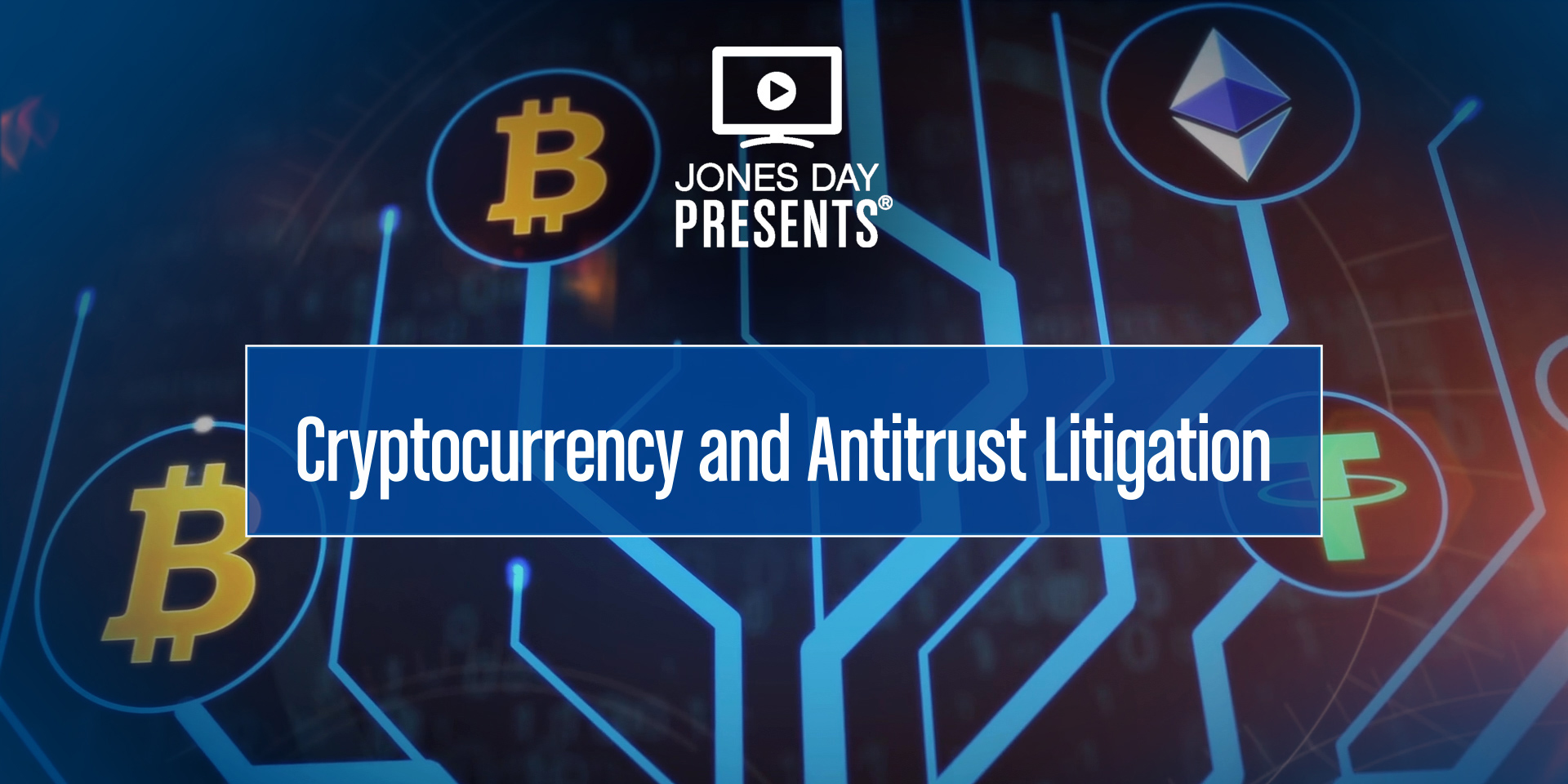
Cryptocurrency and Antitrust Litigation
Jones Day's Chris Pace and Mark Rasmussen discuss the implications of a Florida District Court's decision in United American Corp. v. Bitmain, Inc., which held that Bitmain had not conspired with other companies and software developers to manipulate the Bitcoin Cash cryptocurrency market.
Read the full transcript below:
Mark Rasmussen:
This was a real interesting case for our firm to be involved in. The plaintiff United American sued a group of defendants, including our clients and alleged that the defendants engaged in anti-competitive conduct. This case was pretty significant for a few reasons. Foremost among them is to my knowledge it's the first time anti-trust allegations were made in a private civil complaint in regard to the cryptocurrency industry. The case was filed in down in Florida. The judge down there had to get to know this industry, understand the various players, understand some terminology that probably wasn't familiar to her.
Chris Pace:
Especially, when you're dealing with businesses such as cryptocurrencies that are new, that are rapidly changing. It's very important that your lawyers understand the business, that they're able to communicate how that business operates, how the competition occurs in that industry to the judge accurately, concisely, clearly so that the judge is able to apply the existing laws to what's really a new area. For us, that was of critical importance to the success. In the case. In fact, one of my colleagues here at Jones Day, the judge even had provided a tutorial, kind of a neutral to the tutorial on blockchain and the cryptocurrency markets.
Mark Rasmussen:
She asked the parties to cover certain specific concepts that she saw in the complaint. I always had found in explaining blockchain and crypto to folks that graphics and visual presentations worked best. So we took the questions and the specific concepts that she asked, and we put it together into a PowerPoint presentation. We worked primarily with our defense counsel, co-defense counsel, but also the plaintiff's counsel had input into what we said, what the slide deck looked like. We shared that deck with her ahead of time, and then went through it during the hearing.
Chris Pace:
You can see in the judge's 50 odd page decision that she really did absorb all that information and that it was critical to the outcome that she reached in the case.
Mark Rasmussen:
In 2017, 2018, 2019, when crypto was growing but it still wasn't a major area for law firms to focus on, we spent a lot of time speaking on panels, speaking on CLE, speaking to clients directly in their offices about this technology. We even were fortunate enough to publish a book called blockchain for business lawyers. The legal issues at play for blockchain businesses. We published that through the American Bar Association.
I think having done that year after year time and again, really gave us the opportunity to do a really nice job for the judge of laying out this technology in a way that's easy for people to understand, because when you're just diving into it, it can be pretty daunting and intimidating the concepts, if you're not a computer engineer, for example. But our firm has spent so many years studying this and presenting it to people in a way that's easy to understand. I think that enabled us to, to really help on this case.
Chris Pace:
This may be the first of the cryptocurrency anti-trust cases, I don't expect that it'll be the last. We're going to see other cases. We are already seeing some activity, Tortious interference claims in the crypto assets space, breach of contract claims in the crypto asset space. Again, I think in all of those cases, you're going to continue to see that a critical element is going to be having lawyers who really understand how these assets and how the companies that operate these assets, that mind, these assets, that trade these assets, that make these assets available to others. Understanding how those all operate is going to be critical to the success in future litigation.


